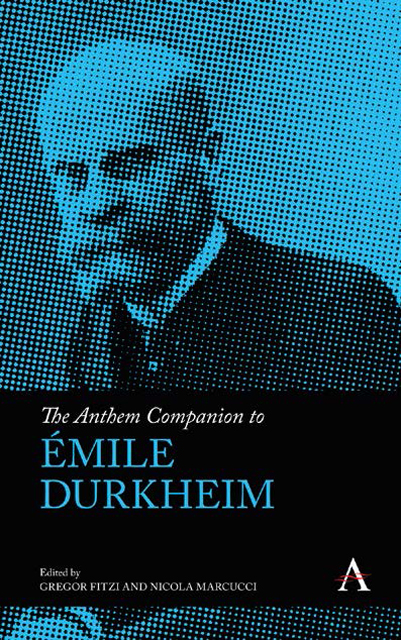Introduction: Explorations with the New Durkheim
Published online by Cambridge University Press: 09 December 2022
Summary
No one would deny Émile Durkheim an essential and inaugural place in the history of the social sciences. No reconstruction of classical sociology can overlook the relevance of his legacy for anthropology and sociology. At the same time, specialists acknowledge that Durkheim has long been diminished by a reception that underestimates the emancipatory relevance of his sociology, compromises its historical and critical contents, and misinterprets its political relevance. Not to mention a general forgetting that Durkheim led a group of researchers who aimed to systematically reorganize the division of intellectual labour in the field of social sciences and to rethink their relation to philosophy and critique. The patrimony and meaning of this collective enterprise has been forgotten because of the absence of institutional continuity and the intellectual dispersion that the Durkheim school experienced in the aftermath of the First World War. Later, the legacy of the French sociological and anthropological school found ‘protection’ and intellectual shelter under the structuralism of Levi-Strauss, which helped to silence its originality – especially its political and historical contents ‒ by integrating Durkheim's and Mauss's systematic theories into a de-historicized conception of human rationality. Add in the fact that Parsons made Durkheim one of the four pillars of the sociological canon, simplifying his complex thought in the process, and it is easy to see why so many have a stereotyped idea of Durkheim's sociology.
For some decades now, researchers have begun confronting and revising the traditional image of a sociologist who has a strong epistemological continuity with positivism, who is ideologically conservative and whose abstract functionalism often lacks a proper historical understanding of political institutions. Starting in the 1970s, the collective work of revision and rediscovery of a ‘new Durkheim’ has begun unveiling the richness of Durkheim's sociology, freeing his legacy from the limits of previous interpretations. This pars destruens of the older reception of Durkheim – or, better, this pars restitutens of its original value – has been fundamental in the rediscovery of the thematic pluralism and conceptual complexity of Durkheim's thinking.
- Type
- Chapter
- Information
- The Anthem Companion to Émile Durkheim , pp. 1 - 8Publisher: Anthem PressPrint publication year: 2022

